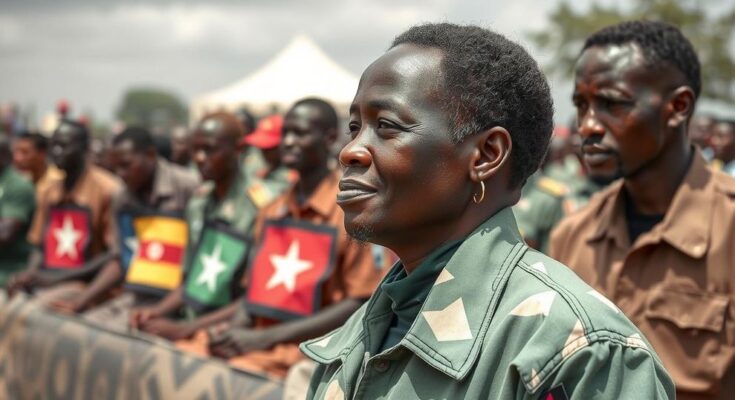South Sudan’s elections have been delayed until December 2026 due to unmet requirements, raising concerns about its transition to democracy. Problems stem from its founding, where power remains concentrated among political elites, exacerbating ethnic tensions and exclusion. A new approach centered on developing political, economic, and social frameworks through an inclusive national dialogue is essential for achieving a stable and democratic South Sudan.
On September 18, 2024, South Sudan’s transitional government postponed elections initially scheduled for 2024 until December 2026, citing a lack of necessary legal, financial, and technical preparations. This delay raises critical concerns regarding the nation’s capability to transition successfully toward democracy. The root causes of South Sudan’s ongoing crisis can be traced back to its inception as an independent nation in 2011, which failed to create robust governmental institutions. The post-independence administration has disproportionately favored specific ethnic groups, creating a prevailing sense of exclusion and centralizing authority in Juba. This governance model has fostered deep-seated ethnic and regional tensions, undermining local civic engagement and rendering ordinary citizens powerless.
Despite the contributions of South Sudan’s populace to its troubles, the international community’s approach has further complicated the situation. Generally, South Sudan is perceived primarily as a humanitarian concern requiring aid and support, rather than a nation with growth potential. Over the years, two peace agreements signed in 2015 and 2018 failed to tackle the structural issues undermining the state, primarily benefiting the interests of unelected political elites while neglecting the citizenry’s aspiration for a responsive democracy.
The issues facing South Sudan demand more than superficial electoral processes; they necessitate a comprehensive directive for revitalization. At its core, South Sudan is marked by historical patterns of authoritarianism, rooted in its colonial past and liberation struggles. Consequently, a mere political leadership change is insufficient. Instead, South Sudan requires a renewed commitment to independence, one focused on establishing robust political, economic, and security frameworks that accommodate its diverse populace.
To pave a constructive future, it is imperative that South Sudanese citizens engage in reflective dialogue about their nation’s failures, shaping a collective vision that fosters peace and growth. A vital aspect of this dialogue is defining their challenges independently, as there remains a lack of consensus on the key issues at hand. Central to their discussions is the urge to disassociate ethnic identities from the nation-state, posing pressing questions about establishing a citizenship-based identity and addressing justice concerns.
In absence of an inclusive political process, marginalized groups have resorted to violence to assert their rightful representation, highlighting the need for a more constructive approach. A national conference, uniting representatives from diverse backgrounds—political, civic, religious, and regional—should be convened to foster understanding and consensus on building democratic infrastructure. This conference should reflect South Sudan’s multicultural fabric, ensuring that half of the delegates are women while promoting youth representation. It is essential to draft a new constitution that is inclusive and responsive to the populace’s needs, replacing the existing constitution that was hastily adopted at independence.
For South Sudan to move toward genuine democracy, the path must be cultivated internally. By rejecting inadequate models that heavily rely on peace agreements and electoral processes, South Sudan can initiate a citizen-led approach through a national conference. This will empower individuals, encourage participation, and facilitate a second chance at independence, ultimately aiding in the quest for stability and growth throughout South Sudan and the wider Horn of Africa.
The background of the article underscores the ongoing political turmoil in South Sudan, stemming from the delayed elections which have been postponed multiple times due to the lack of essential frameworks for conducting credible elections. This context highlights the failure of governance since the country became independent in 2011, illustrating the need for systemic changes to foster a genuine democratic environment. The transition to democracy is hampered by ethnic favoritism and the absence of participatory governance, compelling the need for a new, inclusive approach to nation-building.
In conclusion, South Sudan stands at a critical juncture in its pursuit of democracy. The postponement of elections underscores the necessity for a fundamental reevaluation of its political structures. Achieving true democracy requires a concerted effort from the South Sudanese people to engage in meaningful dialogue, redefine their identity beyond ethnic lines, and establish inclusive democratic institutions. Through a citizen-led initiative centered on a national conference, South Sudan may forge a path toward stability, growth, and a future that reflects the will of its diverse populace.
Original Source: www.radiotamazuj.org




